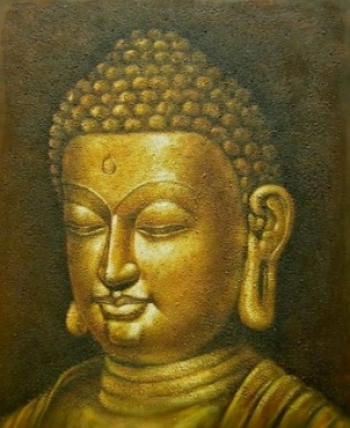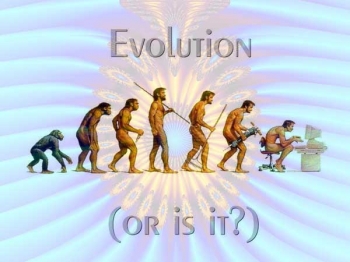Lopez (2008) and McMahan (2008) once made excellent points concerning the compatibility of science and Buddhism. These points largely centred on the tendency to conflate traditional expressions and tropes in the scriptures to match modern discoveries in physics, chemistry, or psychology. There was the graphic image, which Lopez articulated magnificently, of a monk sitting on a laboratory bench with nodes and wires hooked to his head as he meditated for the researchers and scientists. Another unspoken risk was also highlighted: what if there were some empirical experiments that actually demonstrated that some techniques of meditation were not beneficial? Add to that Professor Keown’s almost science-fiction-like discussions about whether we can create a Buddha – be it from stem-cell technology or through cloning techniques – and we have a most productive is sometimes disconcerting discussion between the disciplines of science and Buddhism.
There is also the issue of evolution, pioneered by Darwin and now accepted as ninety-nine percent likely to be the true way the natural world has evolved. Does the scientific worldview – now taken to be a commonsense fact – allow for the orthodox Buddhist conception of the universe? Does it allow for the Six Realms of Desire, does it allow for the celestials (deva) titans (asura), and will it accept a succession of extraordinary beings that appear in the universe to guide others to an unseen state of perfect peace and bliss?
The only difference between the two traditions is that we see evolution differently while agreeing that it is the destiny of a sentient being to evolve. Modern biology sees evolution as a process of natural selection, by which the most adaptable survive. In Buddhism, the course of evolution for a sentient being travels not just horizontally – that is, through different periods in the Earth’s history, but vertically: through different ontological states: from a human to a god, from a god back to a butterfly. And finally, while we do not know how a ‘final product’ is supposed to be in science, we know quite well what the terminus of evolution in Buddhism is. A species in modern science adapts according to an entire host of factors and possibilities, taking certain routes while abandoning others. But in Buddhism, the Dharma is repeatedly revealed by a succession of enlightened teachers who unveil to us the path of liberation and how attainment of that supreme state can be reached. As such, it is a radically different idea of Buddhahood; it proposes to map out the entire plan of evolution for those interested in spirituality.
Therefore, we are not arguing for the incompatibility between Buddhism and science. Nor are we suggesting that it is not more congruent with science than the other world faiths. Our interpretation is largely identical to the other Venerables and Reverends that I have met, work for or written about. Buddhism has a unique moral duty, a unique calling to the world because it relies not on an Earth-centric worldview, but one that encompasses limitless systems of sentience, all permeated with not a ‘life force,’ but a metaphysical potentiality called Buddhahood. There is nothing in this world that does not share this potentiality. In order to touch the Buddha’s hand, in order to look him in the tranquil eye – in order to realize a future where beings are happy and at ease, free from suffering: we must not allow petty disputes about religious doctrine stifle our dialogue with science and the many ways we can benefit from it. We only need to remember that we cannot create a Buddha through genetic manipulation, let alone clone one. A Buddha is not created; a Buddha is realized in the mind. There was a joke once that if one personally were at Bodhgaya when Gautama realized Nirv??a, he would see no earthshaking event, but just a smiling ascetic underneath the Bodhi Tree. It seems anticlimactic, but the point of the joke is that the dramatic changes in a person are inward, not external. They transform the being’s mind before the body. And as such, this is also evolution, albeit of a different kind.
Evolution is actually not always beautiful. It is not always pleasant, and it is blind in the sense that we can still find things in ourselves that are leftovers of our past: the human appendix, for example. Evolution can be careless, it can be slipshod, and it will always be, by definition, imperfect in that evolution is a constant process. But this is merely the evolution we see in sa?s?ra. What of the evolution that brings us to Nirv??a? What of this evolution that is also a moral calling and the greatest joy that human beings can experience? We are not the product of meaninglessness. We are not an arbitrary anomaly. The Buddha loves each of us; each of us is loved by the great bodhisattvas. Perhaps it is wise to evolve according to their advice and teachings.
















